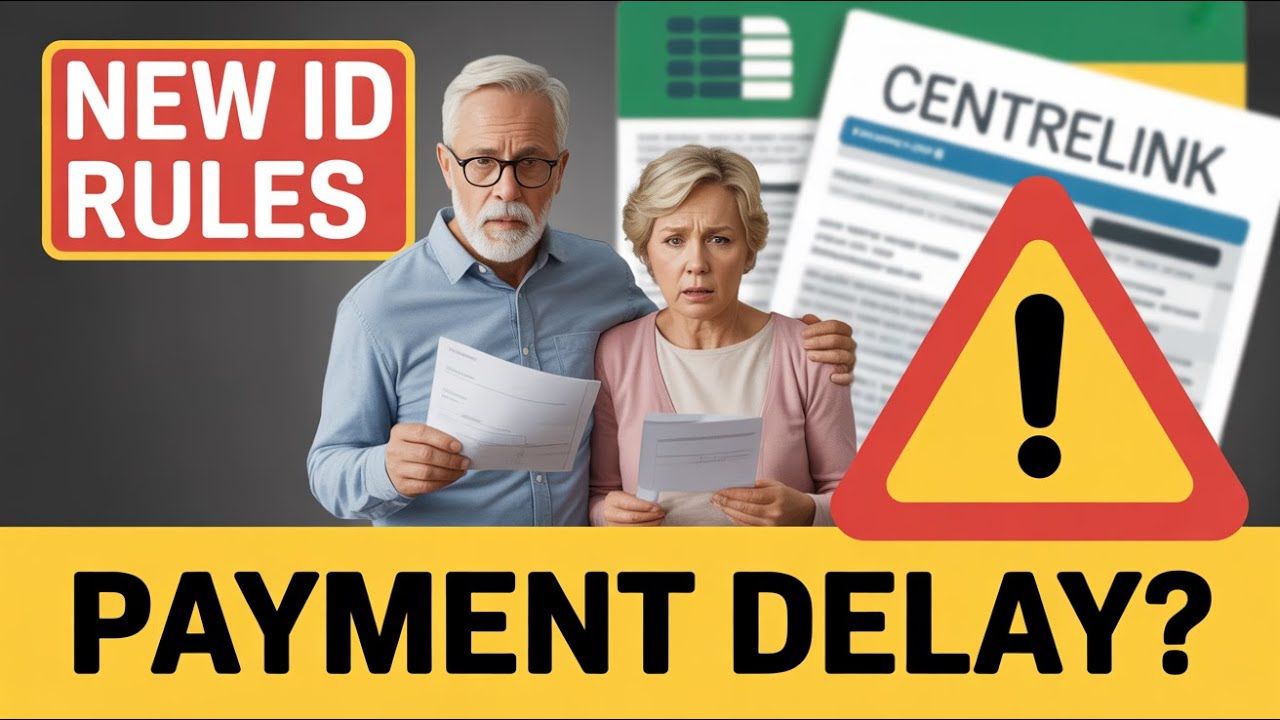From August 2025, Centrelink has introduced stricter identification rules for Australians aged 65 and over. The move is part of a broader government effort to crack down on fraud and ensure payments are going to the right people. While the intention is to strengthen the system, many seniors are being warned that delays could occur if their ID details are not updated in time.
For many pensioners, this is a worrying development. With payments such as the Age Pension, Disability Support Pension, and Carer Payment serving as lifelines, even a short delay could cause stress in managing bills, rent, or medical costs.
Why New ID Verification Rules Have Been Introduced
The Department of Social Services has confirmed that the updated verification system is designed to improve security across Centrelink’s payment network. In recent years, cases of fraudulent claims and identity theft have increased, leading to a tightening of procedures. Seniors, particularly those over 65, are now being asked to reconfirm their details more thoroughly than before.
This includes ensuring that their name, date of birth, residential address, and tax file number all match up across government records. Even minor discrepancies such as an old address or a misspelling in documentation can trigger delays.
How These Rules May Affect Your Payment
The biggest concern for older Australians is the risk of delayed pension deposits. If Centrelink’s system cannot verify a recipient’s ID in line with the new rules, payments may be temporarily withheld until the matter is resolved.
| Situation | Possible Outcome | Solution |
|---|---|---|
| Name or address mismatch in Centrelink records | Payment delayed until records are corrected | Update details online or visit a service centre |
| Expired identification (e.g., driver’s licence, passport) | Verification fails, payment held | Provide alternate valid ID |
| Overseas travel without notifying Centrelink | Payment suspended | Report travel plans before departure |
| Tax File Number not linked properly | Payment delay triggered | Reconfirm TFN with Centrelink |
For seniors who rely on fortnightly payments, even a delay of a few days can impact the ability to pay rent, electricity bills, or medical expenses.
What Seniors Should Do Before Their Next Payment
The best advice for Australians over 65 is to double-check their records now. Log in to myGov or visit a Centrelink service centre to ensure all personal details are up to date. For those who have recently changed address, renewed a passport, or lost a driver’s licence, updating details as early as possible can prevent future problems.
It is also important to keep digital and paper copies of ID handy, as Centrelink may request re-verification at any time. While the new system may feel like an inconvenience, it is expected to prevent fraudulent claims and improve long-term payment security.
The Bigger Picture: Trust vs Burden
While many seniors understand the need for stronger ID checks, advocacy groups have raised concerns about the burden these rules place on vulnerable people. Not all Australians over 65 are comfortable using digital services, and visiting a Centrelink office can be difficult for those with mobility issues.
The government has promised to provide additional support through service centres, phone assistance, and community outreach programs. However, many pensioners believe the rollout of these changes should have included a longer adjustment period.
Final Word
For now, seniors are strongly urged to treat the new Centrelink ID rules as a priority. Updating details early will help avoid payment delays and ensure a smooth transition under the new system. As August 2025 unfolds, the government will be closely monitoring the impact of these changes and may adjust procedures if widespread delays occur.




